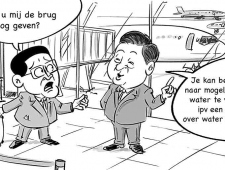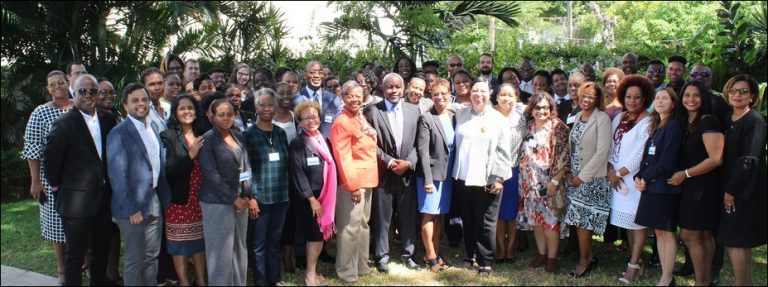
REGIONAL MEETING ON ENDING AIDS IN THE CARIBBEAN

The Pan-Caribbean Partnership against HIV and AIDS (PANCAP) and the Pan American Health Organization (PAHO) hosted the Regional meeting on Ending AIDS in the Caribbean: expanding equitable, effective, innovative and sustainable HIV responses towards the 2020 Fast Track targets on the way to elimination in Kingston, Jamaica on 1 and 2 November 2018.
The purpose of the meeting is to sensitize Caribbean stakeholders on policy approaches that are required to reduce health inequalities. The meeting encompasses the creation of a set of concrete actions to implement the Call To Action that emanated from the Third Latin America and Caribbean Forum on HIV and Sustainability (10 November 2017) for inclusion in the post 2018 Caribbean Regional Strategic Framework on HIV and AIDS (CRSF). These actions will support expanding equitable access to health and social services while strengthening health system responses to HIV and its sustainability.
Mr. Dereck Springer, Director of PANCAP welcomed participants and shared the expectations of the meeting. In her opening remarks, Sannia Sutherland, Programme Coordinator, Caribbean Vulnerable Communities Coalition (CVC) highlighted that civil society groups have been increasingly advocating for mechanisms to address issues that affect key populations and increased accountability.
She stated, “We have been working assiduously to promote the legal empowerment of key populations (KPs) to improve access to health and justice and reduce human rights violations with a view to promoting an enabling environment as we join fast track efforts”.
Ms. Sutherland underscored that throughout the Caribbean, Community-based organizations (CBOs) and the communities they work in are key players in the delivery of health services, as they have unique advantages in advocacy, demand creation and linkage of communities to services, building an understanding of what treatment, prevention, care and support are, and keeping governments, and donors accountable. However, they often deliver services without stable and predictable funding or systemic linkages to formal public health facilities. She further stated that building effective responses to priority health challenges with Key Populations, particularly in the face of the 90-90-90 commitments is a key priority for all civil society groups that work in the trenches contributing to the HIV response in the region. She noted that current actions by stakeholders to end AIDS included strengthening linkages throughout the Treatment Cascade, improving linkages to reach Key Populations, defining further and implementing task shifting and task sharing policies, considering the added value of CBO Interventions at each step in the Treatment Cascade and reaching underserved Youth…[+]















